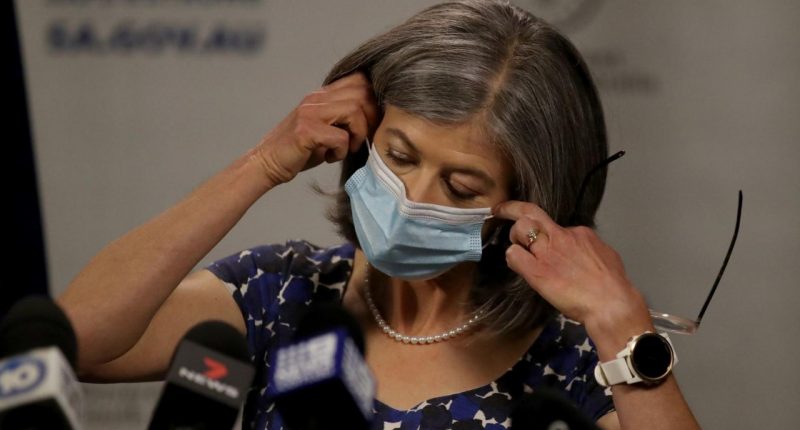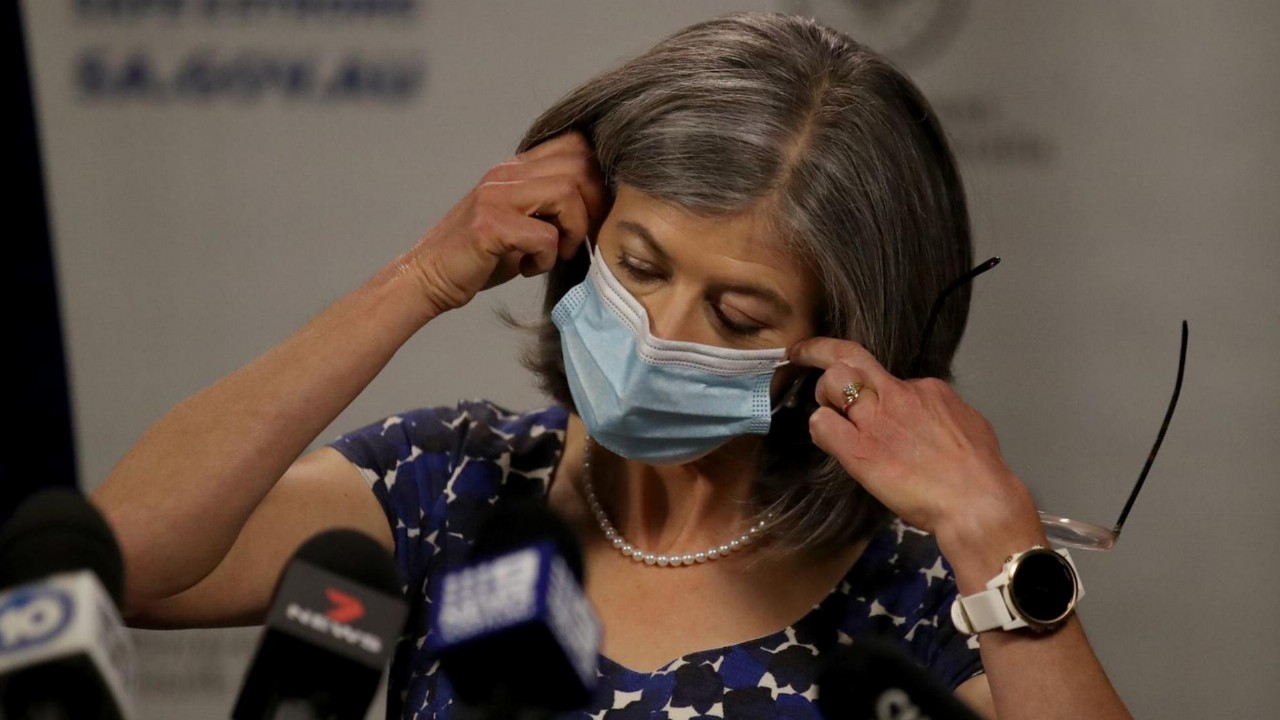- South Australians have spent their first day in lockdown after a COVID-19 outbreak prompted extreme restriction to be bought in statewide
- The South Australian Government implemented a hard lockdown from midnight Thursday after 23 cases of the virus were recorded
- Locals in Adelaide and the regions can’t leave their homes except to carry out essential business or activities
- Schools, gyms, cafes, bars, and non-essential business have all been forced to close for the next six days
- The Government hopes by going hard early, the state will be able to stamp out any community spread of the coronavirus
- No new cases of COVID-19 have officially been recorded today, but experts believe up to 1000 people could unknowingly have contracted the virus
All of South Australia has been locked down in some of the toughest restrictions ever seen in Australia after a COVID-19 outbreak was recorded in the state.
A total of 23 cases have been acquired locally, prompting the South Australian Government to go hard and fast on trying to curb this particular strain of the deadly virus from spreading further.
Toughest lockdown yet
Locals woke up to day one of a mandatory six-day hard lockdown this morning, with most people restricted from leaving their homes unless its for essential work or activities.
A new Direction has been issued in relation to the Stay at Home requirements for South Australia as a Circuit Breaker to the current COVID-19 outbreak. For more please visit: https://t.co/YMRb4wC2vf pic.twitter.com/F858kX5Z90
— South Australia Police (@SAPoliceNews) November 18, 2020
The only things classified as essential are going to supermarkets, chemists or seeking medical care.
Additionally, only one resident per household can go to the shops for one hour each day and they will be encouraged to wear masks.
All schools, universities, hospitality businesses, retail and other non-essential business have shut — with all exercise banned from a gym or outside.
Childcare will continue to operate, but only for essential workers such as those working in the healthcare sector.
Meanwhile, all weddings and funerals have been banned as well, while aged care facilities have also closed to visitors.
These harsh restrictions will remain in place for the next six days, including today, with health authorities hopeful that the measures will stamp out this unusually fast-spreading version of COVID-19.
South Australia’s Chief Health Officer Nicola Spurrier said those infected in the recent Adelaide cluster all began spreading the virus shortly after catching it.
“[This strain] has a very, very short incubation period,” South Australia’s Chief Public Health Officer Nicola Spurrier explained.
“That means when somebody gets exposed, it is taking 24 hours or even less for that person to become infectious to others,” she added.
No new cases — yet
Despite the fast spread of the virus, no new cases have been detected in South Australia today after 20,000 tests were carried out in the last 48 hours.
However, the State’s Premier Steven Marshall warned there could be up to 1000 people in the community who may have the virus without knowing.
“What we do for the next six days will determine if we are able to successfully stare down the threat posed by this outbreak of COVID-19,” he said.
“We want to make sure we stamp out this particularly nasty strain. It’s the biggest threat that we’ve had in South Australia,” he added.







